Ford Focus Rattling Noise When Accelerating
Hearing a rattling noise in your Ford Focus when accelerating can be frustrating and concerning. This sound often points to an issue with the exhaust system, engine mounts, or other parts of the car. Understanding the possible causes and fixing the problem quickly can help ensure your car runs smoothly and safely.
A rattling noise in a Ford Focus during acceleration can happen due to loose exhaust parts, engine mount issues, or a faulty heat shield. It may also come from timing chain problems or low-quality fuel. Check the car soon to avoid more damage and ensure smooth driving.
We’ll talk about “Ford Focus Rattling Noise When Accelerating” in this article.
Table of Contents
Common Causes of Rattling Noises
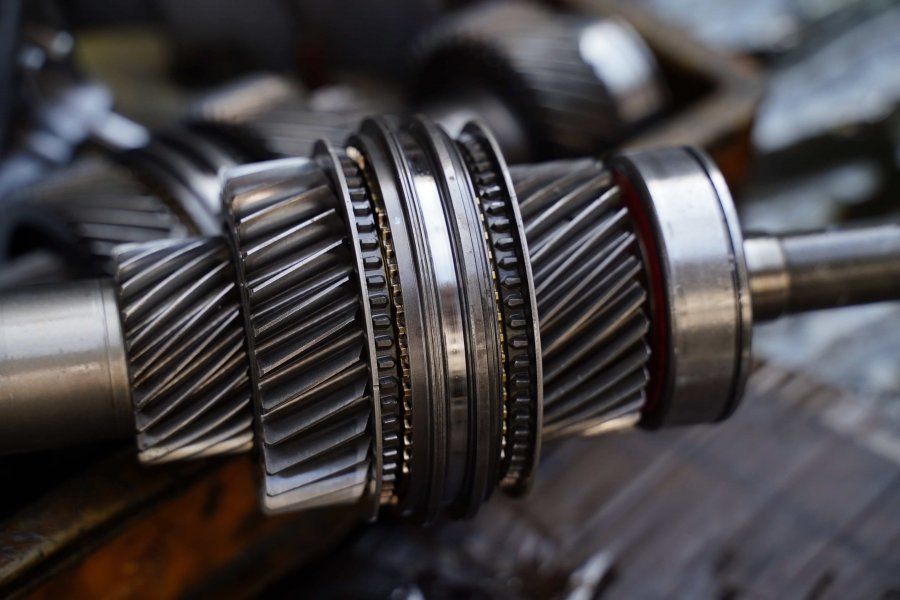
Loose or Damaged Exhaust Components
Loose or damaged exhaust components, like the muffler or tailpipe, can cause rattling noises in your car. These parts might become loose due to wear, corrosion, or impact. As they vibrate, they can hit other parts of the car, creating the noise. Fixing or tightening them can solve the problem.
Also read: 2016 Ford Fusion Phone Button Not Working .
Engine Mount Problems
Engine mount problems can cause rattling noises when accelerating. The engine mounts hold the engine securely to the car’s frame. If they are worn out, broken, or loose, the engine can shake or move more than normal. This movement creates vibrations and noises, especially during acceleration. Replacing the damaged mounts usually fixes the issue
Faulty Heat Shield
A faulty heat shield can cause rattling noises in your car, especially during acceleration. The heat shield protects nearby parts from the high temperatures of the exhaust system. Over time, it can become loose, corroded, or damaged. When this happens, it vibrates or hits other parts of the car, creating noise. Fixing or replacing it solves the problem.
Low-Quality or Incorrect Fuel
Using low-quality or incorrect fuel can cause rattling noises in your car. Poor-quality fuel can lead to incomplete combustion, which creates knocking or rattling sounds in the engine. Using the wrong type of fuel, such as lower octane than required, can also result in similar noises. Switching to the correct, high-quality fuel can fix this issue and improve engine performance.
Diagnosing the Rattling Noise
When Does the Noise Happen?
Understanding when the noise happens can help find the problem. Does it occur only when accelerating, driving at certain speeds, or even while idling? A rattling noise during acceleration could point to exhaust, engine mount, or heat shield issues. Identifying the timing of the noise is key to diagnosing and fixing it.
Tools to Identify the Problem
Using tools can help find the cause of a rattling noise. An OBD-II scanner checks for engine or exhaust issues by reading error codes. A mechanic’s stethoscope helps locate specific noises by amplifying sounds. Basic tools like a flashlight and gloves can also help inspect loose or damaged parts under the car.
Consulting a Mechanic
If you can’t identify the rattling noise or it persists, it’s a good idea to consult a mechanic. They possess the knowledge and resources necessary to correctly identify the issue. A mechanic will inspect your car thoroughly, checking the exhaust system, engine mounts, and other parts to find the cause. Getting expert help ensures the issue is fixed properly and safely.
Exhaust System Issues
Loose Muffler or Tailpipe
A loose muffler or tailpipe can cause a rattling noise when driving. These parts are connected to the exhaust system, and if they become loose or damaged, they can move and hit other parts of the car. This results in the annoying rattling sound, especially when accelerating. The noise should be stopped by tightening or replacing the tailpipe or muffler.
Catalytic Converter Problems
Catalytic converter problems can cause a rattling noise in your car. Over time, the internal parts of the converter may break or get damaged, causing loose pieces to move around. This results in a rattling sound, especially when the car accelerates. If the catalytic converter is damaged, it often needs to be replaced to fix the noise and restore proper function.
Engine-Related Problems
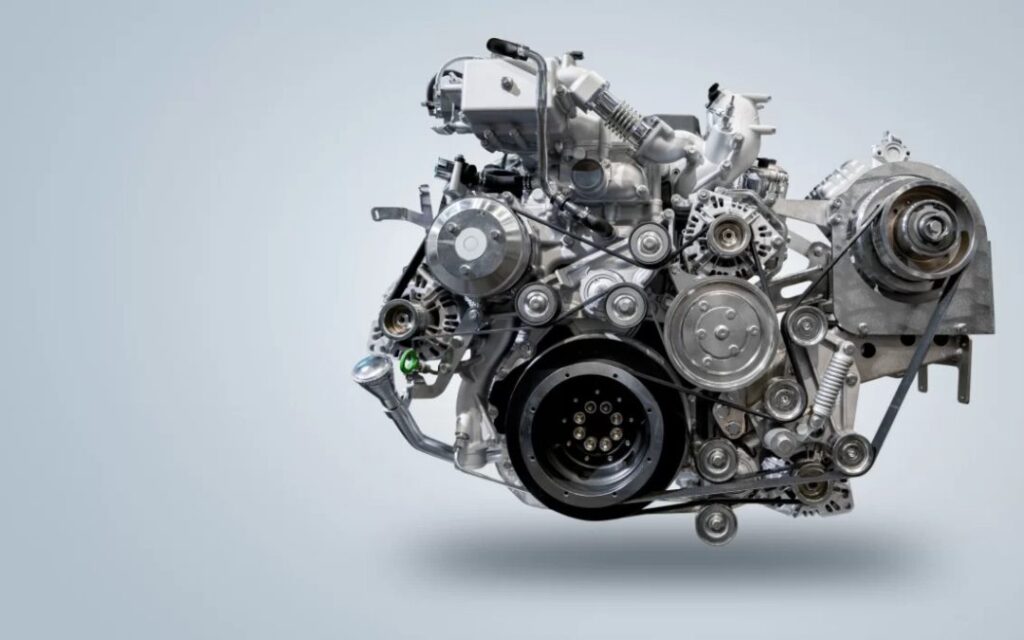
Timing Chain Issues
Timing chain issues can cause a rattling noise in your engine. The timing chain helps control the engine’s valves and is crucial for smooth operation. If it becomes loose, worn, or damaged, it can create a rattling or tapping sound. This problem can lead to engine damage, so it’s important to replace the timing chain as soon as possible to prevent further issues.
Also read :2012 Ford Fusion Heated Seat Not Working
Valve Train Noise
Valve train noise happens when parts in the engine that control the valves become worn or damaged. These parts include the lifters, camshaft, and rocker arms. If they don’t move smoothly, they can cause a rattling or tapping sound. This type of noise can indicate a serious issue, so it’s important to have it checked and repaired to avoid engine damage.
Transmission-Related Noises
Clutch or Gear Problems in Manual Transmissions
Clutch or gear problems in manual transmissions can cause rattling noises. A worn clutch or damaged gear may not engage properly, causing vibrations or strange sounds when shifting. The issue could also be due to low transmission fluid or a faulty clutch release bearing. If you notice noise while changing gears, it’s important to have the clutch and transmission checked and repaired to avoid further damage.
Issues in Automatic Transmissions
Issues in automatic transmissions can include slipping, rough shifting, delayed or harsh shifting, overheating, and fluid leaks. These problems often result from low fluid levels, worn-out parts, or malfunctioning sensors. Regular maintenance, such as changing the transmission fluid, can help prevent issues. It’s important to address problems early to avoid costly repairs and ensure the smooth functioning of the vehicle’s transmission system.
Quick Fixes for Common Issues
Tightening Loose Components
“Tightening loose components” refers to the process of securing parts that may have become loose or wobbly. This is important in machines, vehicles, or furniture to ensure proper functioning and safety. Regularly checking and tightening screws, bolts, or nuts can prevent damage, reduce noise, and extend the life of the object. It’s a simple task that helps keep things running smoothly and prevents future problems.
Using Additives for Fuel and Oil
Using additives for fuel and oil helps improve the performance and longevity of engines. These additives can clean engine parts, reduce wear, and prevent buildup. They can also boost fuel efficiency and reduce emissions. Regular use of additives can help keep the engine running smoothly and reduce maintenance costs.
When to Seek Professional Help

Signs You Can’t Ignore
“Signs you can’t ignore” refer to warning signals that something might be wrong. These can include unusual sounds, smells, or changes in how things work. For example, a car making strange noises or a machine overheating are signs that need immediate attention to avoid bigger problems or damage.
Also read: 2023 Ford Mustang Order Guide Ultimate Guide .
Choosing a Reliable Mechanic
Choosing a reliable mechanic is important for quality car repairs. Seek out someone who communicates clearly, has experience, and has received positive evaluations. A trustworthy mechanic will explain the problem, offer fair prices, and ensure your car is fixed properly. Regular visits to a reliable mechanic can help prevent future issues.
Preventing Future Rattling Noises
Regular Maintenance Tips
Regular maintenance helps keep machines, cars, or tools working well. Change oil, check tires, and clean parts often. Check for wear or damage and take care of it right away. Regularly checking your equipment can prevent bigger problems and help it last longer, saving money on repairs in the future.
Quality Parts and Fuel
Using quality parts and fuel ensures better performance and longer life for your vehicle or equipment. High-quality parts fit well and function properly, reducing the risk of breakdowns. Good fuel helps the engine run smoothly, improving efficiency and saving money on repairs. Always choose trusted brands for reliability.
Conclusion
In conclusion, a rattling noise in your Ford Focus during acceleration can have several causes, including loose exhaust parts, engine mounts, or faulty heat shields. Regular maintenance, such as tightening loose components and using high-quality fuel, can help prevent these issues. If the noise persists, it’s best to consult a mechanic to avoid further damage and ensure your car stays in good condition. Addressing problems early can save you money and keep your vehicle running smoothly for longer.
FAQs
What causes rattling noise in a Ford Focus?
A rattling noise in a Ford Focus can be caused by loose parts, like heat shields, exhaust components, or loose bolts. It could also be worn-out suspension or engine parts needing attention.
How do I fix a rattling noise when accelerating?
To fix a rattling noise when accelerating, check for loose parts like the exhaust system, heat shields, or engine components. Tighten any loose bolts or replace worn-out parts to reduce the noise.
Is it okay to make a rattling sound while driving?
Driving with a rattling noise is not safe. It may indicate a loose or damaged part, which could lead to further issues or a breakdown. It’s best to have it checked and fixed quickly.
How much does it cost to repair these issues?
Repairing rattling noises can cost anything between $100 and $500. It depends on the issue, such as loose parts, exhaust damage, or engine problems. Always get a quote first.
Can regular maintenance prevent rattling noises?
Yes, regular maintenance can help prevent rattling noises. Checking and tightening loose parts, cleaning components, and replacing worn-out items can stop issues before they lead to annoying sounds or bigger problems.



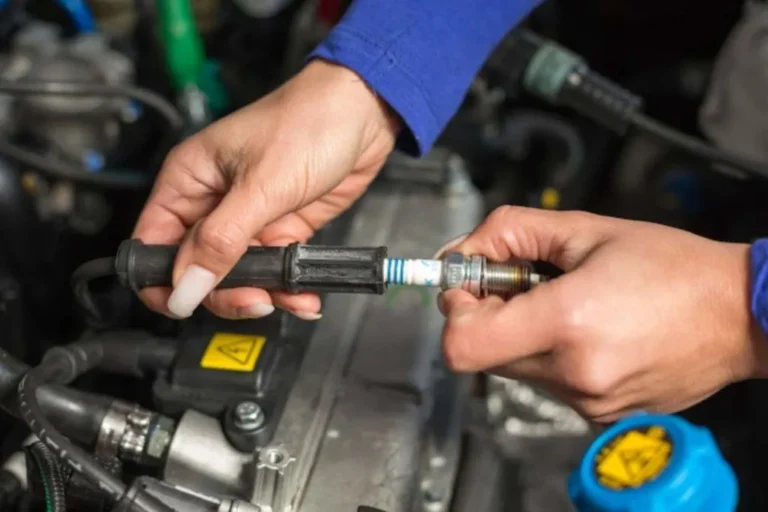
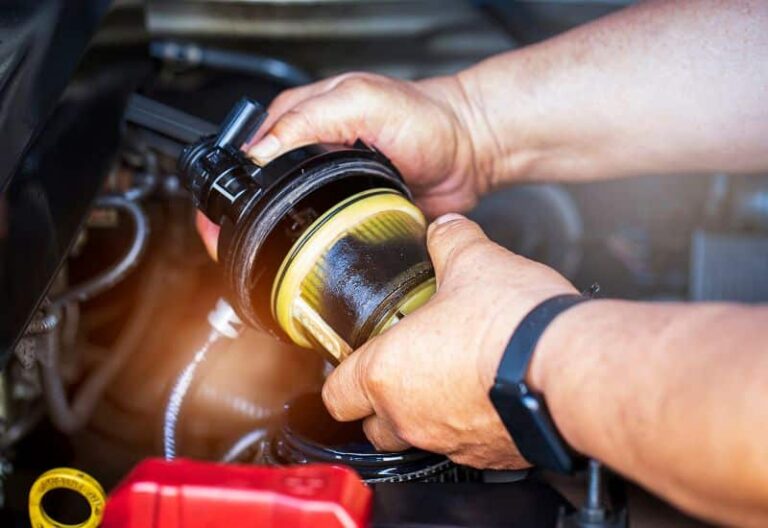
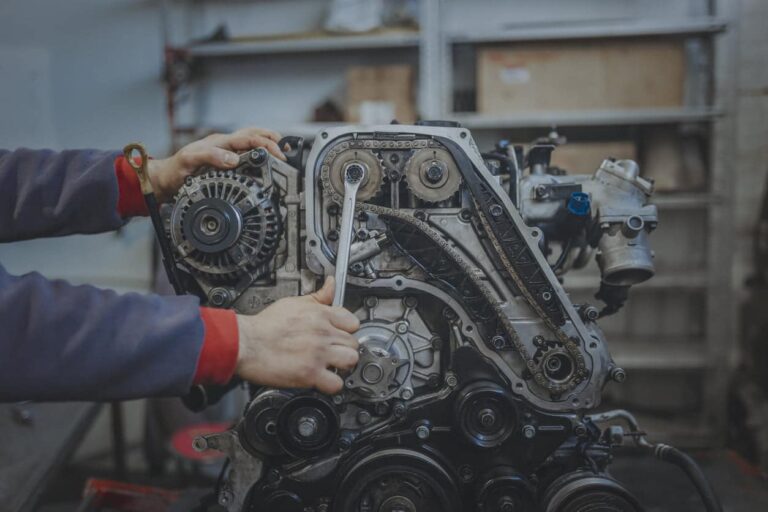
One Comment